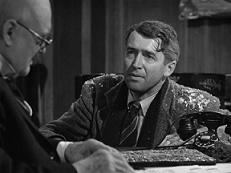 Dave Zirin of Counter Punch Magazine has an interesting piece on the life Kobe Bryant could have led had he been convicted on sexual assault charges two years ago. (Zirin, "Rotten at the Core: Kobe Bryant and the Price of Freedom," Counter Punch, 9/6/2006). As you may all remeber, those charges were dropped less than a week before Bryant's trial was set to begin. Zarin's piece argues that, because of race, African-American men are far more likely than white men to be convicted of criminal charges, and absent extraordinary wealth (see: Bryant, O.J. Simpson), they can expect to endure seemingly-ghoulish conditions behind bars:
Dave Zirin of Counter Punch Magazine has an interesting piece on the life Kobe Bryant could have led had he been convicted on sexual assault charges two years ago. (Zirin, "Rotten at the Core: Kobe Bryant and the Price of Freedom," Counter Punch, 9/6/2006). As you may all remeber, those charges were dropped less than a week before Bryant's trial was set to begin. Zarin's piece argues that, because of race, African-American men are far more likely than white men to be convicted of criminal charges, and absent extraordinary wealth (see: Bryant, O.J. Simpson), they can expect to endure seemingly-ghoulish conditions behind bars:
Now we know the price of freedom in the USA: eight to ten million dollars. That's how much Kobe Bryant shelled out to his legal team to avoid a rape conviction and four to life in a Colorado Maximum Security Prison. That's how much it costs for a young black man to evade a trial by a jury pool that is .5% African-American. That's how much it costs to get out of Dodge.My take: I tend to believe that socio-economic status is just as important as race (i.e., poorer, less educated folks--white/black/asian/you name it--seldom make "good defendants" and can't afford legal teams, and are thus less likely to receive the benefit of the doubt that most of the people reading this would--white/black/asian/you name it). Similarly, the human impulse towards "justice" (or, less delicately put, "pay back") animates our thinking in how we respond to crime, and that often has more to do with the crime than the criminal (and, frankly, "pay back" may not always be a bad thing). But obviously, race is still a very significant factor in who ends up in prison and what happens to them in prison, as African-American men are far more likely to be convicted than white men, and they tend to receive harsher penalties for the same conviction.It was a small price to pay. If convicted in Eagle County, Kobe would not have shared a cell with Martha Stewart in the Michael Milken wing of a country club prison. He would have been grinded through the sick machine of Colorado's sex-offense "rehabilitation" system.
Frankly, "sick" doesn't begin to describe it. First, Kobe would likely have been denied bail--a standard Rocky State result of a Class A felony conviction--and then spend 60 days in a county cell waiting to be sentenced.
Then, during the 60-day waiting period, the NBA All-Star would have been given what is called a "penile plethysmograph test." The PPT, which plays a determining role for sentencing, involves fitting an electric measuring band around the penis and connecting this apparatus to a computer. Then Kobe would be shown films of graphic sexual violence and illegal pornography as the computer gauges his level of "arousal and deviancy" . . .
For Bryant, raised in Italy, the son of a globe trotting professional basketball player, a Colorado Maximum Security Prison would be a rude awakening. For the first year, "he [would] be in a cell 23 hours out of 24," explains Denver trial attorney Bob McAllister. "He's famous so the guards will make sure there's no appearance of favoritism. They'll probably be harder on him, full-body cavity searches, just to show him he isn't anything special" . . .
Three-strikes laws, zero tolerance policies, and mandatory minimum sentencing have left more than two million people in this country rotting in prisons, the numbers disproportionately black and brown. For those who don't have ten figure salaries to spend on attorneys, punishment, torture and 23-hour lockdowns become your new life.
Hat Tip: Henry Abbot's True Hoop





0 comments:
Post a Comment